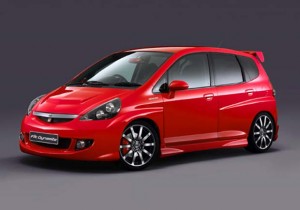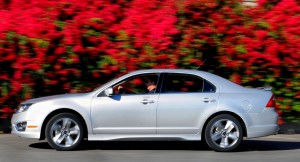Influential Consumers Reports magazine takes a bite out of European carmakers hide with its 2011 “Automakers Report Card,” while Ford Motor Co. continues to close the gap with Asian rivals, posting the largest year-over-year gain in the annual survey.
European cars generally perform well in Consumer Reports road tests, but many have confusing controls and inconsistent reliability, the magazine bluntly states in its yearly assessment of carmakers.
If front-seat comfort, fit and finish, and driving dynamics were all that counted, European cars would rule the roost. But Volvo is the only European make with an above-average reliability score, the magazine says.
The Volkswagen brand’s reliability has improved of late, but Audi’s spotty reliability brings the combined automaker’s score down.
If the new Jetta sedan, with its low-grade interior and mediocre fuel economy, is an indication of where Volkswagen is headed, it’s going in the wrong direction, with Consumer Reports recommending just 53% of the Volkswagen and Audi models tested.
Mercedes-Benz and BMW, with below-average reliability, are near the bottom of the Automakers Report Card rankings. SUVs from both carmakers, especially, had reliability problems, according to Consumer Reports,
Mercedes-Benz is the only manufacturer with the dubious distinction of having year over year drops in both its average road-test (77 to 73) and reliability ratings (from average to below average).
The magazine cites Honda and Subaru for making the best vehicles overall, but Ford posts the largest gain, improving both its road-test and reliability scores in the past year, according to CR’s annual “Automakers Report Card” for 2011.
The Ford Mustang and Kia Sorento are among six new models named to the Consumer Reports annual Top Picks car list for 2011, earning spots in the Sporty Car and Family SUV categories respectively.
The 10 picks come from six manufacturers and eight brands, reflecting the increasing competitiveness within today’s auto market, Consumer Reports notes.
The redesigned Hyundai Elantra, which now comes standard with Electronic Stability Control (ESC), also tops the list in the Small Car category.
Other new additions for this year include the Honda Fit, which was cited as the industry’s best value, Toyota RAV4, Toyota Sienna and Chevrolet Avalanche. Carried over from the 2010 list are the Infiniti G37, Toyota Prius and Nissan Altima.
“This year’s diverse list of Top Picks reflects the fact that the industry is changing,” says Rik Paul, Consumer Reports’ automotive editor. “No one particular manufacturer dominates, as a number of automakers are now producing high-quality, reliable cars that score well in our tests.”
Ford has outpaced its cross-town rivals in reliability in recent years, and this year its average test score for all tested models rises from 66 to 70. Current offerings such as the Fusion, Flex, and Mustang have been impressive, and even the new Fiesta score well in tests. Consumer Reports currently recommends 71% of the Ford vehicles it has tested.
The Consumer Reports score card reflects the performance, comfort, utility, and reliability of more than 270 vehicles that Consumer Reports recently tested. Each automaker’s overall score is based on a composite of road-test and predicted-reliability scores for all of its tested models. The road test score is based on more than 50 tests and evaluations, covering performance, safety, fuel economy, comfort, and convenience.
Honda, Subaru, and Toyota are the top three for the third year in a row. Most of their vehicles do well in Consumer Reports tests and are relatively trouble-free.
Honda, including its Acura division, has had the best reliability record of any manufacturer and has made mostly good to outstanding vehicles. In fact, no Honda product scores less than average in reliability.
Currently, Consumer Reports recommends 76% of the Honda vehicles it has tested. But some new Hondas have been unimpressive, including the CR-Z and Insight hybrids, which didn’t score well enough in CR’s tests to go on the Recommended Buy list. The redesigned Odyssey, still CR’s top-ranked minivan, drops a few points in its test score, compared with the previous year.
Subaru, which has the highest average road-test score (81), makes only about a half-a-dozen models, but almost all do well in Consumer Reports road tests and have been reliability stalwarts.
The overall reliability of Toyota, Lexus, and Scion models remains better than average with a steadfast average test score of 74 for all tested vehicles. However, some newer Toyotas have slipped in interior fit and finish. Two Toyotas, the subcompact Yaris and the FJ Cruiser SUV, have shown superb reliability. However, these two vehicles are not on the Recommended Buy list because of their low road-test scores.
General Motors has also improved in both its average road-test and reliability scores. The newer GM models, such as the Buick Enclave and LaCrosse, and the Chevrolet Equinox and Traverse have performed well in Consumer Reports’ tests. GM’s average score for all tested models has improved to 67 from 65 last year. But the company still fields a few lackluster cars, including the Chevrolet Impala sedan and Colorado pickup.
The below-average reliability of Cadillac and GMC models also hurts GM, according to the survey.
Chrysler came in last in the class, with the lowest average test score in the survey. As it overhauls its lineup, however, newer models, such as the Jeep Grand Cherokee and Dodge Ram, are doing better in Consumer Reports tests than older models, the magazine says.
Chrysler’s reliability, which is below average, needs to improve for the automaker to be competitive. Consumer Reports currently recommends only one Chrysler model, the Dodge Ram 1500 pickup truck.


